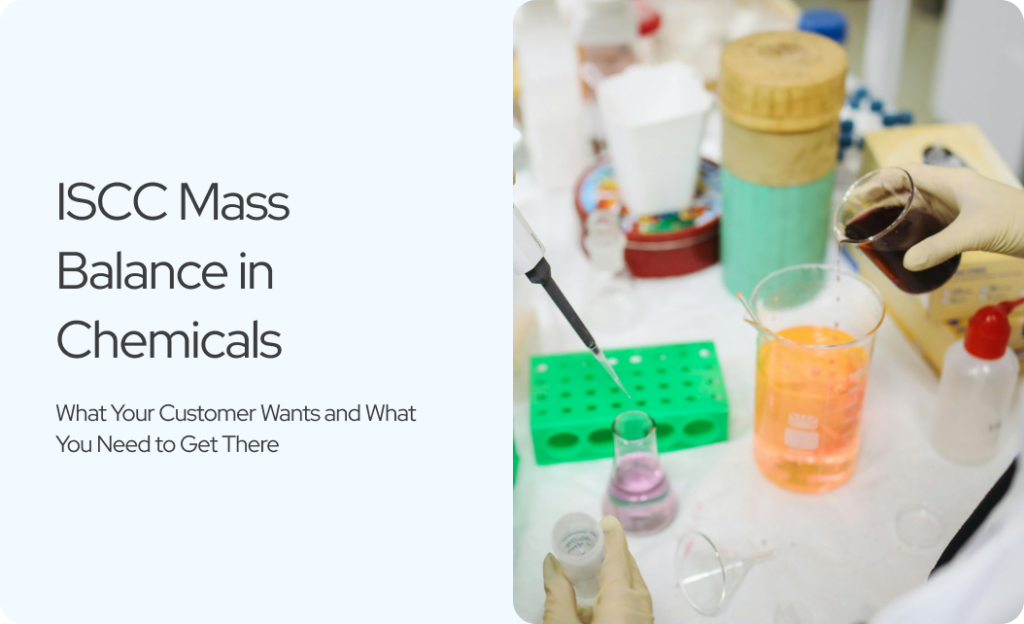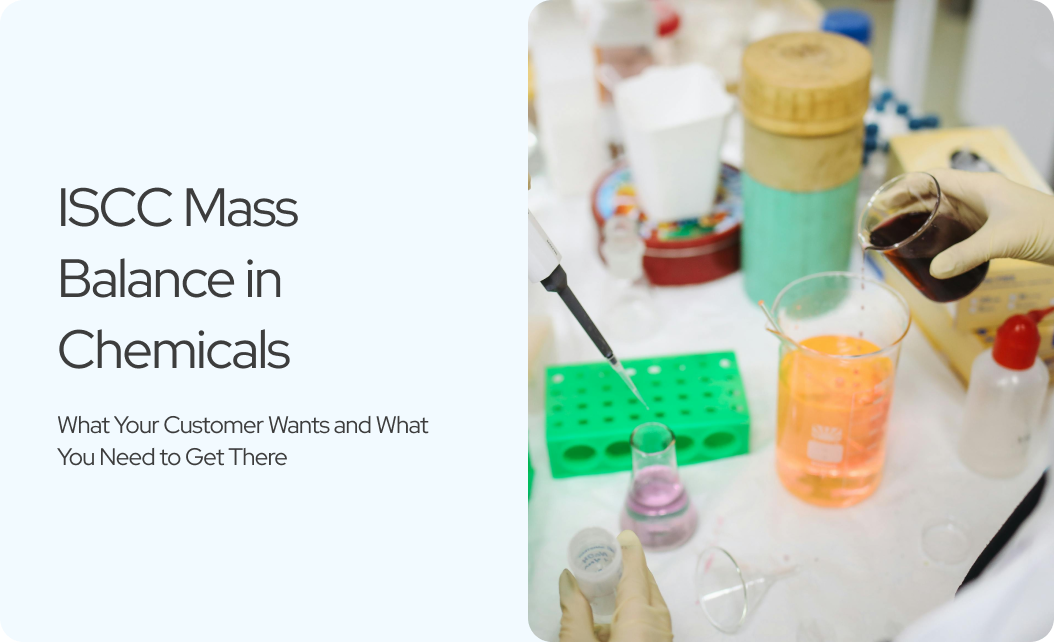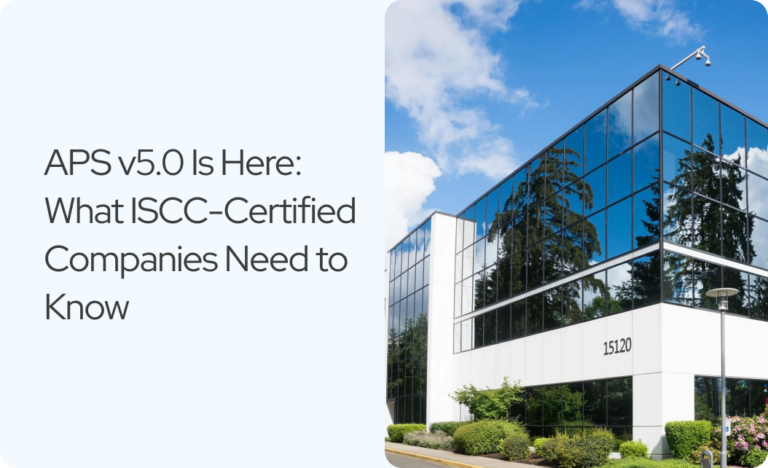ISCC Mass Balance in Chemicals: What Your Customer Wants and What You Need to Get There

ISCC Mass Balance in Chemicals: What Your Customer Wants and What You Need to Get There
If you’re in a chemical company right now, here’s a scene that might feel familiar:
Your top customer, a CPG giant, maybe an automotive tier-1, has just emailed you asking for ISCC mass balance declarations for a few key products. They’re already certified and now expect you to catch up.
They’re not asking whether you plan to get certified.
They’re asking when you’ll be ready to supply verified, traceable materials.
And suddenly, sustainability compliance isn’t just a corporate goal. It’s a condition for doing business.
Let’s Step Back: What Does Mass Balance Actually Mean for Chemicals?
Mass balance isn’t a new concept in the chemical world—you already use it in process engineering. But ISCC mass balance is different: it’s about tracking sustainability attributes, not just kilograms of feedstock.
In ISCC, you’re not physically separating bio-based or recycled materials from fossil ones. Instead, you’re:
- Accounting for certified inputs (like used cooking oil-based naphtha)
- Allocating those credits to outputs (like surfactants, additives, polymers)
- Proving the math checks out—via documentation, audits, and declarations
It’s chain-of-custody accounting, applied to sustainability claims. And it’s harder than it sounds.
The Reality on the Ground: Common Roadblocks in Chemical Companies
1. You’re juggling complex inputs, and Excel isn’t cutting it.
Most chemical processes involve multiple feedstocks, fossil, bio-based, and recycled. When these mix in reactors or blending tanks, it’s nearly impossible to trace origins without a robust system. Teams often end up managing mass balance in spreadsheets across sites, teams, and time zones. That’s a recipe for audit risk.
2. You’re late to the ISCC game, but your customer is already certified.
They’ve moved fast. You haven’t. And now you’re trying to retrofit ISCC requirements into plants that weren’t built for it.
3. You’re unsure what counts and what doesn’t.
Questions like:
- Can I carry over sustainability credits between sites?
- What if I convert feedstocks mid-stream?
- How do I prove allocation without batch-level segregation?
These aren’t theoretical. They’re questions you will be asked in your audit.
What You Need: A Way to Do This Without Losing Your Mind (or Certification)
Here’s what the leaders are doing, and what you need to do too:
✅ Automate the allocation logic
No more “someone forgot to update the spreadsheet.” Use software that enforces ISCC allocation rules, handles carryover periods, and prevents double-counting.
✅ Scan supplier SDs instead of typing them in
You’re getting dozens of Sustainability Declarations (SDs) from upstream vendors. Instead of manually logging each one, tools like Carboledger automatically read, verify, and link SDs to your inventory.
✅ Generate customer declarations in clicks
Your customers want proof. Fast. An automated system lets you generate accurate SDs for outgoing products with traceability back to inputs, without scrambling during audits.
✅ Integrate with your ERP and lab systems
You’re already tracking inventory and quality somewhere, just not in a format ISCC accepts. Good mass balance tools pull data from SAP, MES, LIMS, and clean it for compliance.
Example: Specialty Additives Manufacturer Under Pressure
One of Carboledger’s clients, a specialty chemical supplier for home care and personal care brands had to get ISCC-ready across 3 sites in 2 countries within 60 days. Why?
Because their top 3 customers made it a contractual requirement.
They used Smart Balance to:
- Centralize incoming and outgoing credit tracking
- Automate error prevention based on ISCC rules
- Read SDs from upstream suppliers (saving hours per week)
- Share verified declarations with brand customers, on time, without back-and-forth
That shift didn’t just help pass audits. It kept them on preferred supplier lists.
Final Word: Mass Balance Is the New Proof Point in B2B Chemicals
ISCC mass balance isn’t just about compliance. It’s the signal you send to buyers:
We’re credible. We’re ready. You can trust our data.
Customers want partners who make sustainability easy—not ones who slow things down with missing documentation, inconsistent data, or manual delays.
If you’re scrambling to answer that “Can you share your SDs?” email…It’s time to upgrade your system.Let Carboledger show you how.
We have helped some of the world’s largest chemical companies scale mass balance tracking and ISCC declarations across multiple sites, without needing to rebuild internal systems.
Disclaimer:
Carboledger Inc. is an independent software provider. References to ISCC or any other certification schemes in this article are made solely for informational and educational purposes. Carboledger is not affiliated with, certified by, or endorsed by ISCC System GmbH or any certification body. The content does not constitute certification advice or official guidance.





